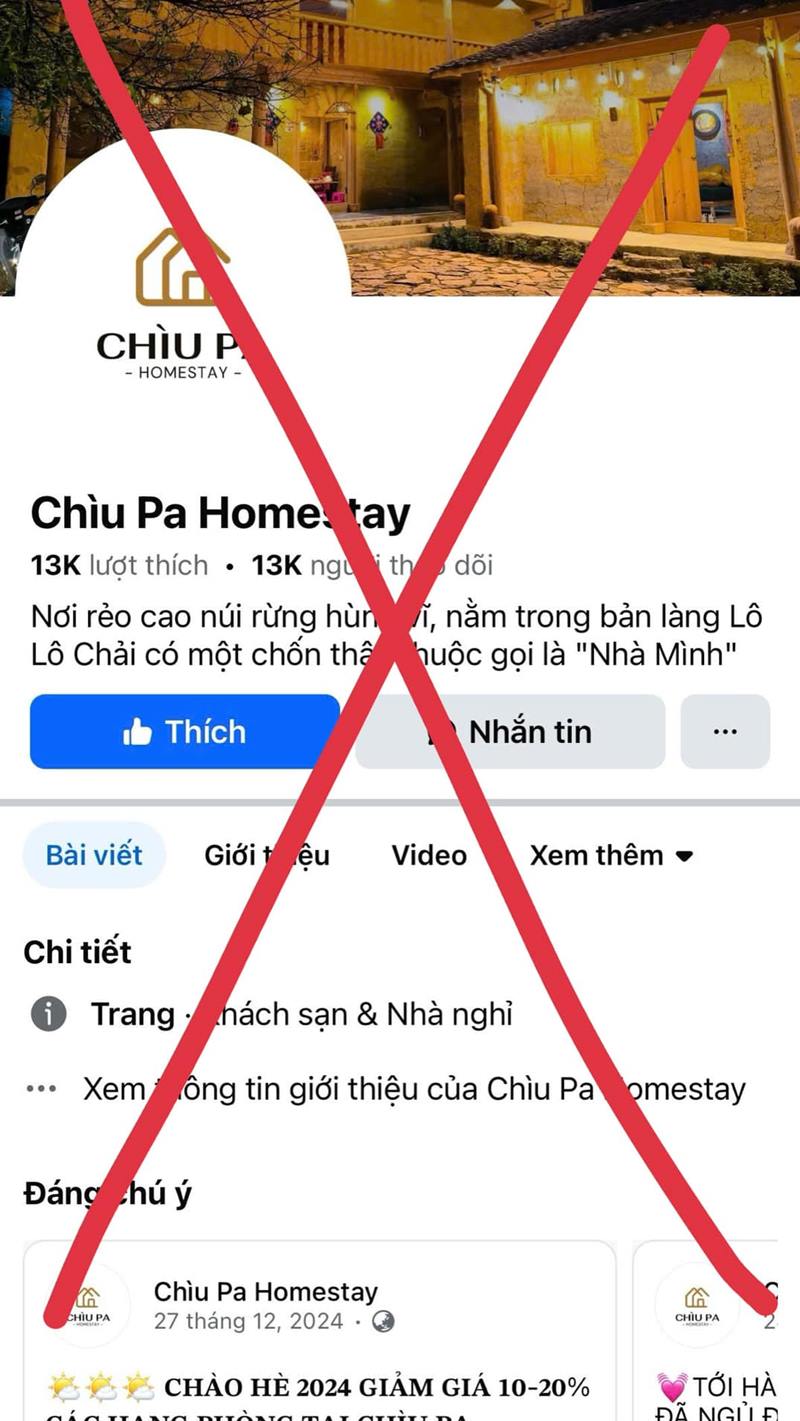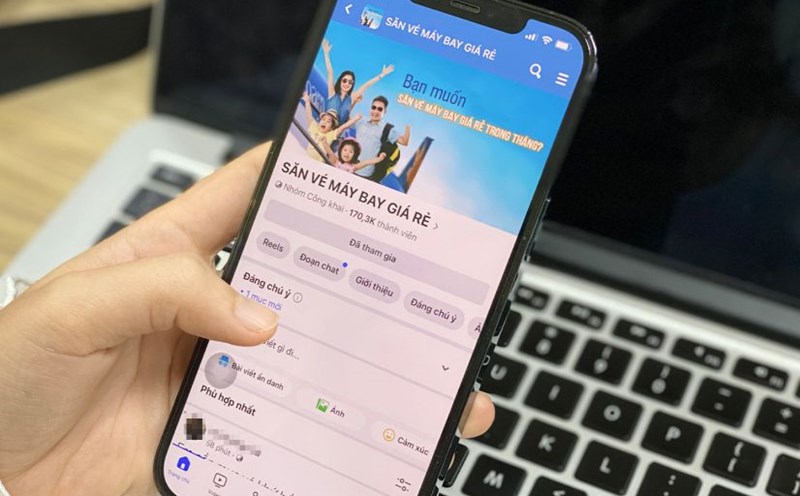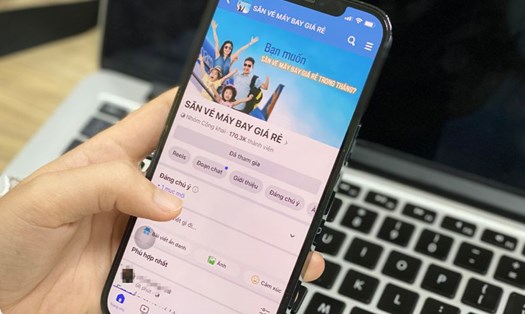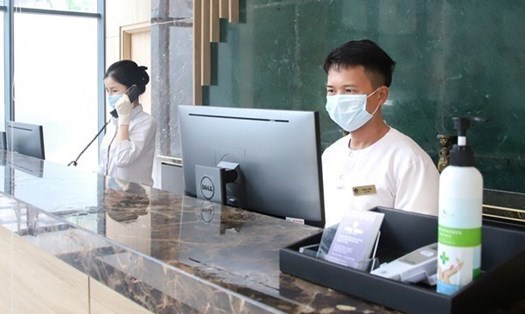Fraudulent tricks to appropriate money
At the end of the year, Ms. Y.N. (Le Chan district, Hai Phong) shared a case of being tricked into booking a 5-star hotel room in Sa Pa on a travel group. Accordingly, when she found a cheap hotel service advertised on Facebook, she proactively texted and requested to book a room on the fanpage with the hotel's name (without the blue tick to ensure the account was verified).
After the exchange, the female tourist was informed that the booking system was fully automated and linked to the bank. She was then asked to follow several steps of the scammer's instructions, transferring 70% of the deposit in advance, worth more than 6 million VND.
With the reason of incorrect transfer information, Ms. Y.N. continued to receive video calls from an employee impersonating the hotel's accountant, with the purpose of continuing to get some transfer codes. However, when she discovered that she was possibly being scammed, the female tourist stopped working and demanded the money transferred back.
At this time, she was blocked by the hotel account and could not text or call.
This is not an isolated case, many tourists have been scammed out of money, even a lot of money, when they encountered similar tricks.
H.N. (Hoang Mai district, Hanoi) shared his experience after surveying dozens of homestays on Facebook and choosing the right scam channel: “I subjectively thought that only big hotels were fake, the place I chose was moderate and not too expensive but also had a fake fanpage. The tricks were very sophisticated, the scammers issued invoices that looked real and reduced the room rate if 100% was transferred.”
To prevent similar cases from happening, many homestays in Ha Giang, Sa Pa, Moc Chau, Ba Vi... have had to post articles calling on tourists to be aware and vigilant against fake fanpages. Fake fanpages and Facebook accounts with names identical to the owners are rampant.

Accordingly, the scammer copied the exact same advertisement and posted it on the fake page, increasing interaction to increase customer trust. The fake fanpage even had better images and more interaction than the real fanpage, making it impossible for customers to distinguish.
Not only booking hotels and homestays, scammers also create groups and fanpages, post information advertising airline tickets and cheap Tet tours with attractive invitations such as "Travel combo - cheap tour", "Last minute tour - Super cheap price", "Tet and Holiday Tour with super attractive price"... Along with that are eye-catching images, detailed schedules and commitments of "reputation and quality" to create trust.
Beware of scams
Facing the trick of booking scams, hotel and homestay representative channels need to actively post reminders and warnings to tourists to be highly vigilant. Customers should call to check and request to see real photos of the homestay for confirmation.
Consider carefully before transferring a deposit, especially a large amount. In addition, visitors should proactively report any suspected violations. It is best to book a room through the hotel hotline.
Mr. Nguyen Van Hieu - General Director of Vitamin Tours, owner of the Cha Small Village Halong tourism complex, said that the Tet holiday is the time when scammers selling tours, airline tickets, hotels, etc. are rampant. To avoid falling into traps, tourists should choose wisely and not believe in unreasonably cheap combos.
“Scammers often prey on customers’ desire for bargains. However, it should be understood that during the peak tourist season of Tet, there cannot be unreasonably cheap combos, even lower than usual,” said Mr. Hieu.
According to experts, people should be vigilant against advertising posts from unknown accounts about tours with super cheap prices compared to the market. They should verify information from official sources and not trust unclear announcements or information channels.
In particular, visitors should not provide personal information, bank account information or passwords to anyone. Be wary of requests to access strange links, do not download applications of unknown origin or follow instructions from strangers.
The Information Security Department recommends that in case of suspicion of being scammed, people should immediately report to the authorities or consumer protection organizations for timely support, resolution and prevention.






